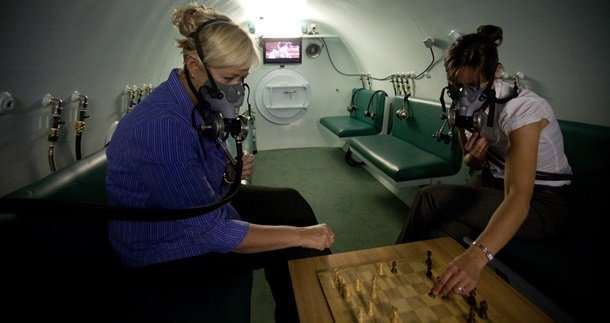What This News Means
A hyperbaric oxygen therapy (HBOT) session before opiate detox could halve severe withdrawal symptoms and related complications.
The lead researcher, Professor Quock, declared the discovery to be of “profound importance“ at a time when heroin use has doubled among young Americans in the last decade. There are currently other drugs which can treat heroin addiction; however, these are themselves addictive and withdrawal symptoms can be so severe that some addicts would rather continue taking heroin than go through detox and get clean.
The First Study in Russia – 1995
Professor Quock began his investigations in mice after reading a study by Russian researcher Epifanova NM, 1995, which was based on humans with alcohol, cocaine and opiate addiction. It found that the detox length could be halved and biological complications (such as heart failure) inhibited by the use of HBOT. The Russian research was ignored by the West, but now the Washington State University study has resurrected and reinforced it.
HBOT at Castle Craig
Of course, Castle Craig has been commending the benefits of hyperbaric oxygen therapy for many years. We are unique in providing HBOT as a complementary treatment in our addiction recovery programme. We have been offering it to our patients since 2008 as an aid to detox from alcohol and drugs, especially cocaine.
Former Castle Craig Medical Director, Professor Jonathan Chick, has suggested that even though the critical study of effectiveness in patients has not been conducted with the classic random allocation either to active HBOT or a dummy HBOT, the HBOT procedure is so safe, and causes no stress or distress to patients, that it should be offered quite early in opiate detox, a view endorsed by Consultant Psychiatrist Dr Jim Craig.
More about the US Study
The lead researcher is Professor Ray Quock of Washington State University Department of Psychology. The study was published in writing this month in the important journal Brain Research (2016 1648 434-7). The research was funded by the US Government National Institute of Health.
-
References
Daniel Nicoara, Yangmiao Zhang, Jordan T. Nelson, Abigail L. Brewer, Prianka Maharaj, Shea N. DeWald, Donald Y. Shirachi, Raymond M. Quock. Hyperbaric oxygen treatment suppresses withdrawal signs in morphine-dependent mice. Brain Research, 2016; 1648: 434 DOI: 10.1016/j.brainres.2016.08.017


